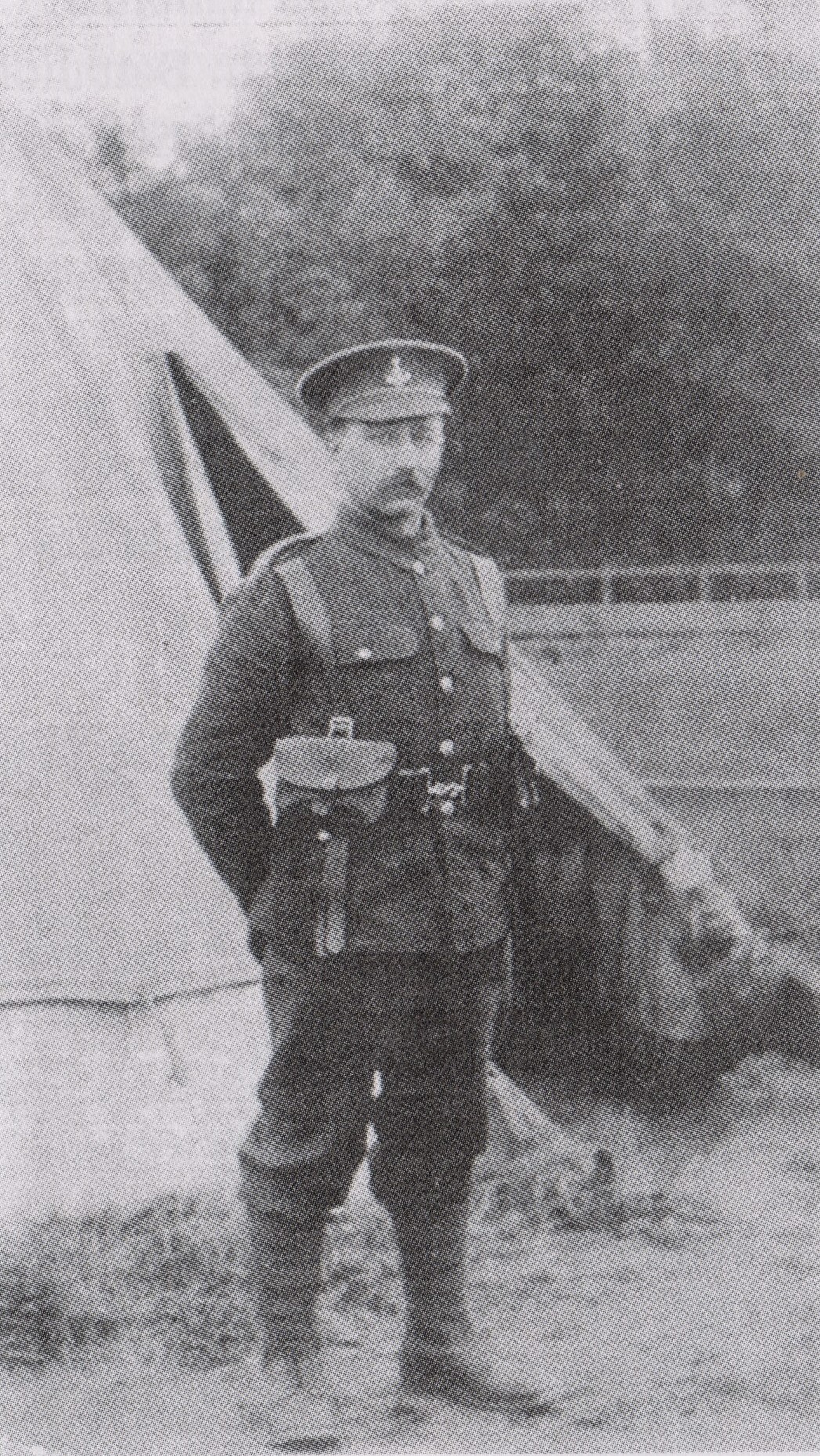
The Outhwaite family came to live in Stalling Busk in the Raydaleside area near Bainbridge in the 1730s to farm the land. Thomas’s father William had married Eleanor Pickard, a girl from Newbiggin near Aysgarth. They later lived for a time at Ingleton in the Dales where Thomas was born in 1880. Thomas would be one of 6 children. Shortly after 1880 they moved back to Stalling Busk. Thomas’s father eventually became the gamekeeper on the estate of Colonel Percy Williams, MP, of Raydale Grange.
In 1905 Thomas’s brother William took over the Rope works in Hawes, which still operates today under the Outhwaite name. By now Thomas had married Gertrude Sherrington, a girl from Tunstall near Catterick and was working with his father on the Raydale Estate.
Thomas enlisted in 1915 joining the 9th Battalion Yorkshire Regiment. It was during The Battle of Messines in June 1917 that on the 19th Private Thomas Pickard Outhwaite was wounded, he died of his wounds later that day. He is buried at the Military Cemetery in Poperinge.
Explore more memories from the ribbon
-
Philip Baker
Marcia Howard submitted this photo of her father, Philip Baker (right) and her Uncle Leslie – both ready to defend King and Country in 1915. The story she has to tell connects the First and Second World Wars: “Philip my father and Uncle Leslie were the two youngest of the boys in their large family. With an ‘Army’ father in the Hampshire Regiment, it depended on his posting as to where each child was born. Uncle Leslie b.1907 was born in Bermuda, although by the time my dad arrived, they were back in England and he was born 1910 in Winchester. Older siblings had been born in various locations including County Cork, Aldershot and Hampshire. My grandfather Ernest Benjamin Baker was discovered to have haemophilia, a condition which eventually caused his demise, but with an Army Pension, was retained as an Army Messenger as far as I am aware. My grandfather, who died well before I was born, suffered a nose bleed after falling off his bike which caused him to bleed to death. From checking the National School Admission Register, Leslie went to St Thomas’s Higher Grade National/Service Church of England school in Winchester. I couldn’t find details of where my father Philip went to school, but I do recall him telling me during my early teenage years, that he had hated school, and one day had just walked out, never to return. It was a year before he was officially allowed to leave. Fortunately for him he was both…
-
Gertrude Bell
Fiona Hall, Communications and Retail Manager at the Green Howards Museum submitted this story about one of the most important women of the First World War (in fact of any) era. I’m intrigued by this local hero – a complex character. There’s not enough space here to describe the many achievements of Gertrude Bell, and that’s not the point of this entry. Although I do recommend you take some time to acquaint yourself with her if you are not already familiar with this fascinating woman – archaeologist, mountaineer, one of the first women to gain a degree at Oxford (a First in History) but an anti-suffrage campaigner, the first to work for British military intelligence, colleague of TE Lawrence, and also the first to write a government white paper. She was born in 1868 into the sixth richest family in England, the granddaughter of the industrialist Sir Isaac Lowthian Bell, and lived in Redcar. When war broke out her request for a government posting to the Middle East was denied. Instead she volunteered with the Red Cross, taking charge of the missing and wounded office in Boulogne. Meanwhile her brother, Maurice, a career soldier and Boer War veteran was commanding the 4th Bn The Yorkshire Regiment on the western front. Imagine working in the environment Gertrude was working in- with the very possible chance she may have to ‘process’ information about the fate of her own brother. Maurice was in fact invalided home in 1916 and died in 1944. In…
-
Dixon Overfield
Si Wheeler submitted the story of his great grandfather, Dixon Overfield, but it’s also a great example of the impact of war on all those connected to the soldier who served. “Dixon was married to Margaret and they had a daughter Madge, born in 1915. Dixon enlisted in Filey in September 1916. He originally joined the Royal Field Artillery but soon got transferred to the 6th Battalion, the Yorkshire Regiment. He was sent to France and saw action at Arras, before being moved to Belgium. Dixon survived this fight, but twelve days later he too was killed in action at the Battle of Poelcappelle on the 9th of October 1917 when a shell burst just above himself and several comrades. Their bodies were never recovered. Dixon is remembered on the Tyne Cot Memorial. Dixon’s wife died in 1924, leaving my grandmother, Madge, aged 9, an orphan. Raised by two aunts, then entering service at 13, Madge was taken under the wing of her housekeeper boss, Lizzie Andrew and became part of her extended family. Aged 18, Madge moved to London to train as a nurse, working through the Blitz and marrying a Dunkirk evacuee soldier, my granddad, Harry Wheeler. Harry didn’t mind where they settled to start married life, so they moved to Swanland in East Yorkshire, where Lizzie lived. My parents live there to this day.”
